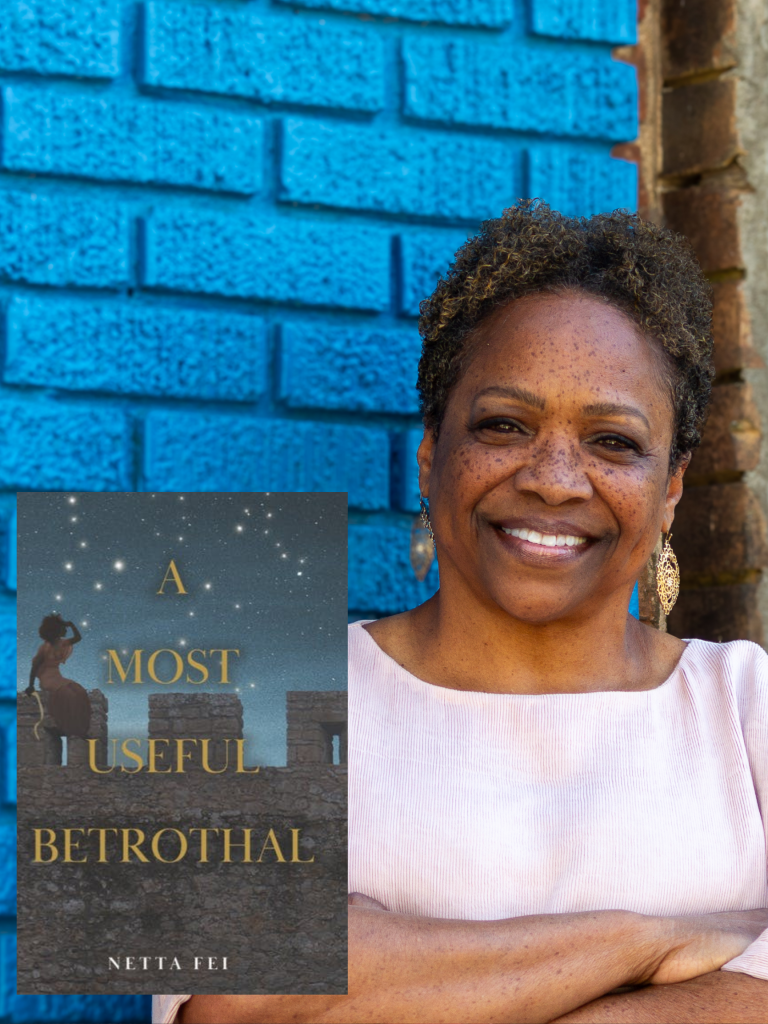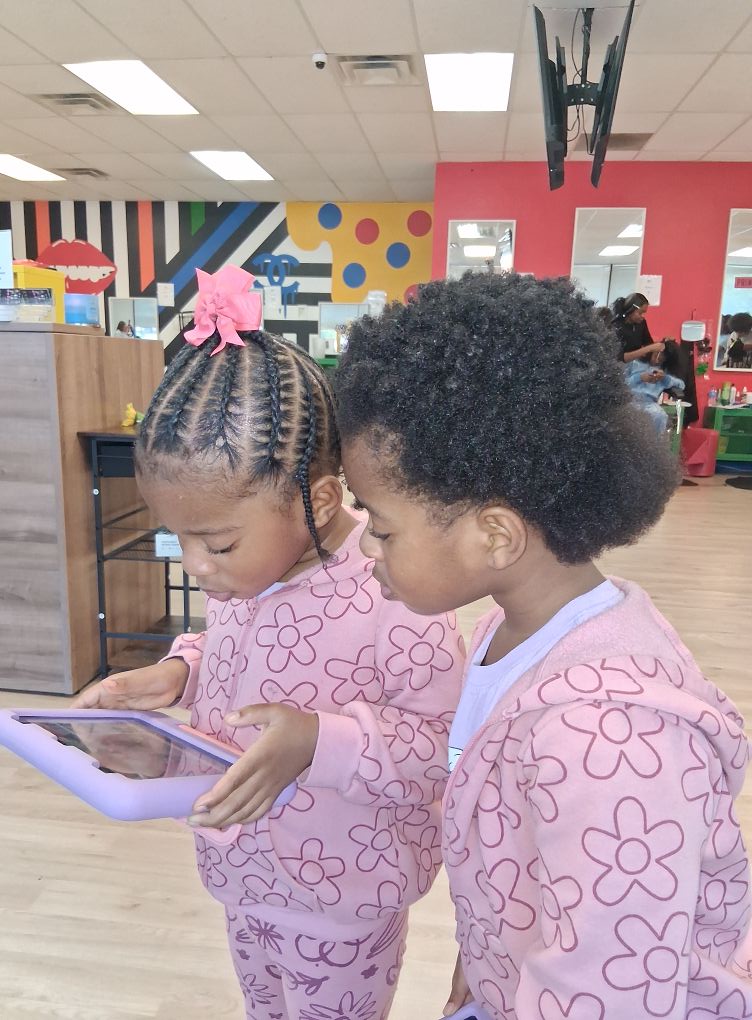
Hello World,
I’m back with a “Fiction Friday” blog post! Since I became a debut novelist back in 2019, I’m aiming to feature other novelists (debut novelists are my favorite since authors put their hearts and souls into their debuts) on After the Altar Call in a more systematic way since I have historically favored nonfiction. To that end, I’m pleased to introduce my fellow PK (Pastor’s Kid) Netta Fei and her debut novel A Most Useful Betrothal to you, my dear readers. Isn’t that an intriguing title? And her novel was inspired by her marriage — AND divorce (Y’all know I love me some tea)…Please see the synopsis followed by my Q&A with her below!
In the rolling hills of Kanaan lies the mysterious tale of Abyga’el, a fifteen-year-old girl whose sharp intellect and breathtaking beauty are overshadowed by her blinding passion to rescue children abandoned by their law-abiding parents, like she once was. When a curious marriage proposal ignites her soul’s desire to create a child sanctuary, she breaks cultural confines of the Eber Y’israelite nation and secretly arranges her own betrothal to a suitor she knows nothing of. She does this right before reuniting and falling in love with Dawit, the nation’s honorable and charming warrior, creating a two-fold dilemma: Dawit’s on the run from the nation’s vain and jealous king who wants him dead and, unbeknownst to Dawit, Aby is already married in the eyes of their law.
Will Aby find the strength to soothes the boorish Nabal, her legal husband, outwit his equally wicked first wife, liberate the slaves he calls residents and steer her own destiny, or will she succumb to the nonsense that could imprison her forever?
1.What inspired you to write A Most Useful Betrothal and tell Abyga’el’s story?
My inspiration began with the in I Samuel 25:3 story of Abyga’el who was described as a beautiful and intelligent woman who was married to a fool. That nagged me for a long time, so I sought to answer one question: how does a beautiful, intelligent girl end up married to a fool? Unfortunately, her story appeared in my own in life and those of some of my girlfriends. So, I blended my imagination and experience to weave my take on what happened with Aby. What happened to make her betrothed to a surly man?
2. How did your life inform the story?
Twenty years into my marriage, I accepted the hard truth that my spouse and I were utterly incompatible. Divorce wasn’t an option for me, initially. So, I stewed in the disconnect for way too long, looking back to figure out how I—a smart and intelligent girl—could have gotten into such an antithetical, until-death-do-you-part relationship. Often when we should know better, we can still land in an unequally yoked or unproductive predicament. I realized, as Aby does in the book, that most decisions that take us there come from some kind of negative thinking about ourselves.
3. So, incompatible relationships are a key theme covered in the book?
They are and I hope that the story is a wake-up call for people, especially women, to be wiser with eyes wide open before connecting themselves with people who don’t complement or progress our best selves. Yet, incompatibility isn’t limited to relationships. It can show up in our thinking and agreements made around finances, health, integrity, morality, and such. The book also highlights other themes, such as the status of women in ancient patriarchal societies; the strength of the feminine prowess to change situations; the importance of self-love, self-awareness, and self-acceptance; legalism versus spiritualism; and the ills of caste.
4. What draws you to write biblical fiction?
As a preacher’s kid, I was fed a steady diet of Bible. I understand how biblical narratives are easily buried away in old crypts or put on high, holy pedestals. I want to resurrect and bring down to earth biblical stories about women and present them as moral and spiritual truths that are relatable and relevant to us today. And I enjoy doing that with characters who have dark skin, broad noses, full lips, and textured hair. Some biblical enthusiasts may not see that coming.
5. Why was it important for you to use ethnic names in this novel?
I did that to emphasize two things. The first is that names in ancient biblical times were a vital part of a person’s identity, reflecting their destiny, character, deity, family lineage, or some other trait. The second is the fact that biblical characters were more Afrocentric than not. The anglicized names we use today do not reflect that. I created a glossary to help readers see these two aspects more clearly and to know how to pronounce the names.
6. This is your debut novel but A Most Useful Betrothal is already an award-winner?
Yes, it was a long time in the making and I feel grateful to say that it won the Georgia Writers Association’s 2023 John Lewis Grant for Fiction.
7. What else will we see coming from Netta Fei?
More of the same, I hope. I’m working on the sequel to A Most Useful Betrothal which is exciting even though I hadn’t planned on doing it. It tells the rest of Aby’s story, particularly what she experiences in the small city known today as Ziklag and through the child sanctuary.
Netta Fei is a practicing writer, enchanted by the eternal feminine energy that heals—especially when it’s pumped, paraded, and praised by bold women. Her writing journey began at her high school newspaper followed by her earning journalism and MBA degrees and honing her writing and marketing skills in the corporate arena. She draws on her preacher’s kid, southern black Baptist, corporate America, and misaligned marriage experiences to inform her historical, biblical, and women’s fiction storytelling today.
Netta Fei supports literary and sisterhood communities as a member of the Women’s Fiction Writers Association, Black Authors Association, Georgia Writers Association, Atlanta Writers’ Club, and Delta Sigma Theta Sorority, Inc. When she’s not writing, you can find her immersed in a good book, playing tennis, exercising, laughing with friends, and experimenting with plant-based recipes then enticing her family to try them.
For more information about Netta Fei, visit nettafei.com.
Any thoughts?




